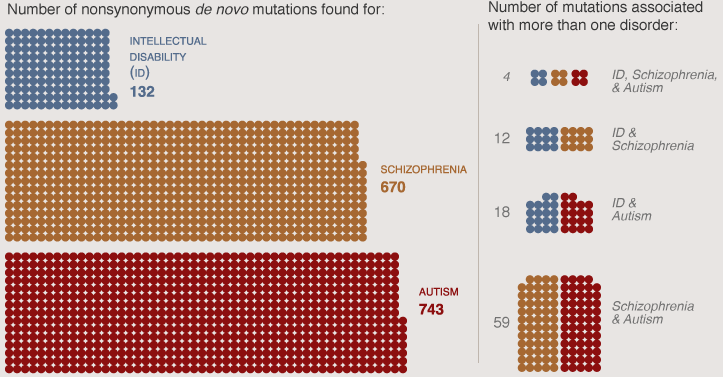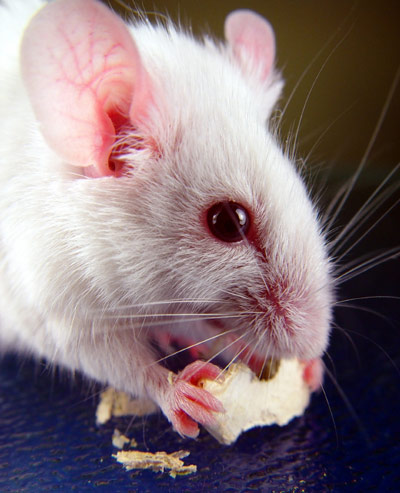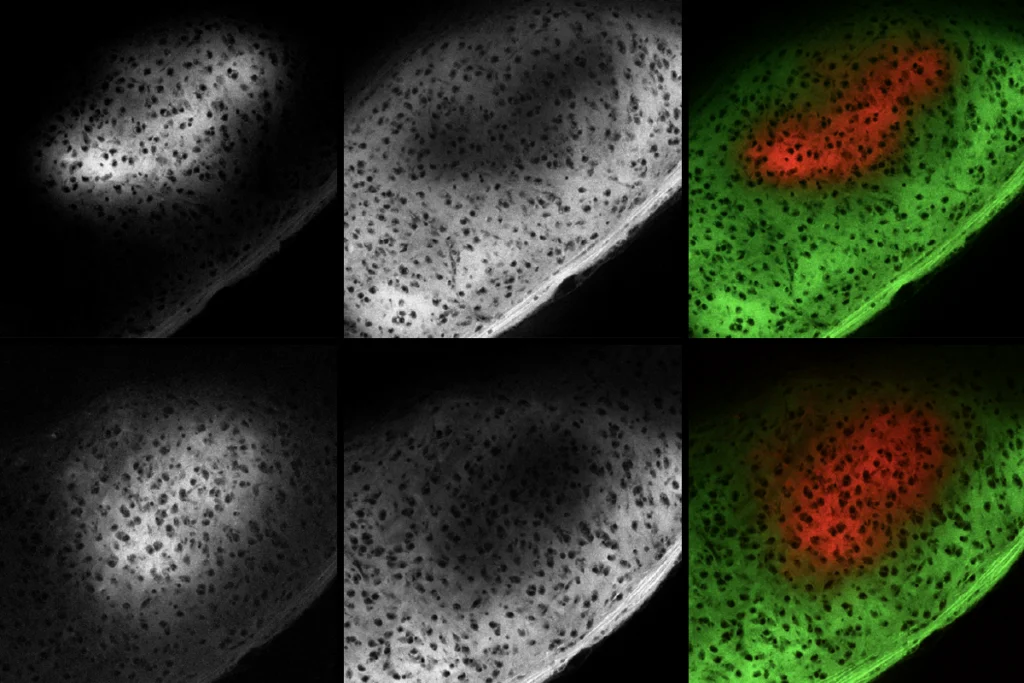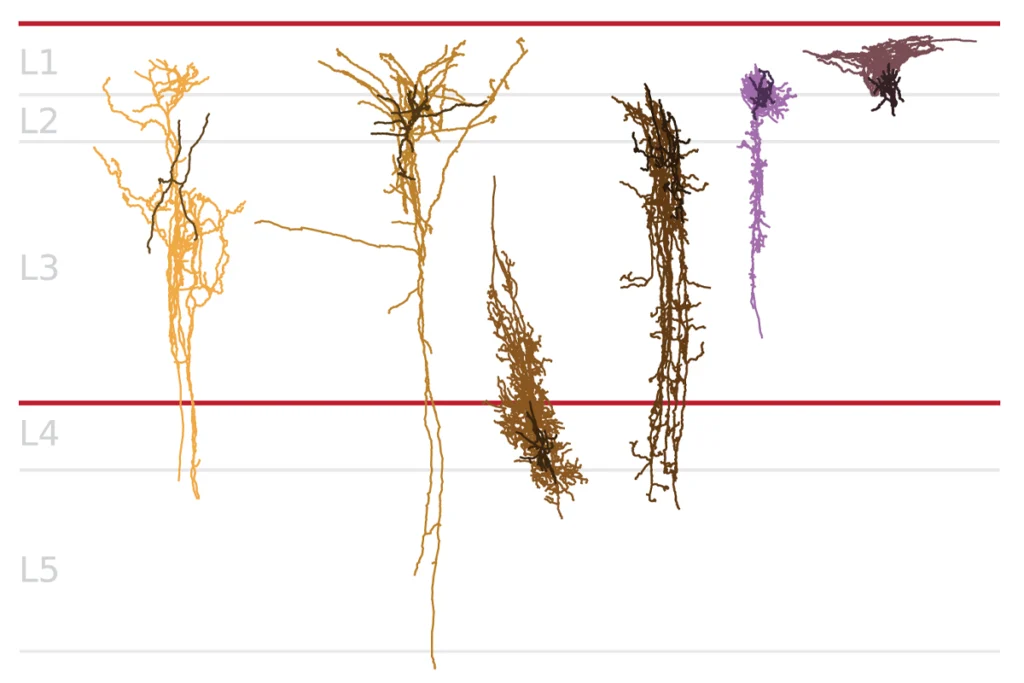Valerie Ross
Freelance Writer
SFARI.org
From this contributor
RNA binds to fragile X gene, shutting it down
Misplaced pieces of RNA bind and disable the gene responsible for fragile X syndrome, leading to the disorder, according to a study published 28 February in Science.
Attention deficit in mothers raises children’s autism risk
Children of women who have attention deficit hyperactivity disorder are at increased risk for autism and attention deficit, according to a study published 21 January in the Journal of Child Psychology and Psychiatry. This suggests the two diseases have common risk factors.

Attention deficit in mothers raises children’s autism risk
Spontaneous and rare mutations are key in schizophrenia
Spontaneous and rare mutations, particularly in genes related to networks that regulate neuronal connections, contribute a small but significant proportion of the risk for schizophrenia, report two large studies published online 22 January in Nature.

Spontaneous and rare mutations are key in schizophrenia
Duplication of chromosome 22 region thwarts schizophrenia
Carrying a duplication of the 22q11.2 chromosomal region may protect against schizophrenia, suggests a study published 12 November in Molecular Psychiatry. This is the first evidence of a genetic region that lowers the risk of a disorder rather than increases it.

Duplication of chromosome 22 region thwarts schizophrenia
Genetics: SHANK3 duplication leads to hyperactivity in mice
Mice with a duplication of SHANK3, a gene with strong links to autism, are hyperactive and manic, reports a study published 7 November in Nature.

Genetics: SHANK3 duplication leads to hyperactivity in mice
Explore more from The Transmitter
Karen Adolph explains how we develop our ability to move through the world
How do babies' bodies and their environment teach them to move—and how can robots benefit from these insights?

Karen Adolph explains how we develop our ability to move through the world
How do babies' bodies and their environment teach them to move—and how can robots benefit from these insights?
Microglia’s pruning function called into question
Scientists are divided over the extent to which the cells sculpt circuits during development.

Microglia’s pruning function called into question
Scientists are divided over the extent to which the cells sculpt circuits during development.
Early trajectory of Alzheimer’s tracked in single-cell brain atlases
Inflammation in glia and the loss of certain inhibitory cells may kick off a disease cascade decades before diagnosis.

Early trajectory of Alzheimer’s tracked in single-cell brain atlases
Inflammation in glia and the loss of certain inhibitory cells may kick off a disease cascade decades before diagnosis.
